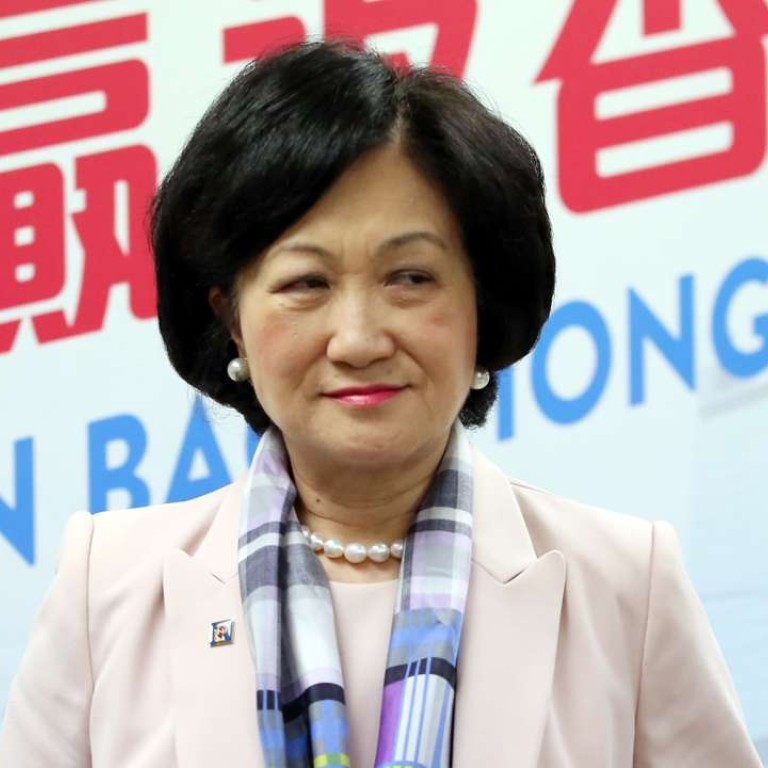
Radio host and former model sued by Regina Ip lose bid to submit new grounds for defence
Albert Cheng alleged on his show that the pro-Beijing legislator tried to mislead the public to help her party in an election, with Erica Yuen also sued for sharing the clip
A veteran radio host and a Miss Hong Kong contestant turned politician were dealt a blow in a libel case against a pro-establishment legislator on Monday after a judge rejected their bid to submit new grounds for defence.
New People’s Party chairwoman – and possible chief executive contender – Regina Ip Lau Suk-yee sued Albert Cheng in 2014 for accusing her, during his radio show, of deceiving the public along with the owner of an Ap Lei Chau mall, with the help of the government and Beijing’s liaison office in Hong Kong.
She also sued former model Erica Yuen Mi-ming for uploading the show to YouTube. In the video’s description, Yuen wrote that Ip and the mall owner “pulled a cat’s tail”, a Cantonese expression referring to corruption.

The court heard that in 2014, there was a proposal to convert Marina Square (West) into an outlet mall selling luxury brands, targeting mainland tourists.
The proposal sparked controversy in South Horizons West, a constituency where Judy Chan Ka-pui, a member of Ip’s party, beat Yuen in a district council by-election in March that year.
On the radio show, Cheng claimed that, through the local government and the liaison office, Ip approached the owners of the mall, and asked them to postpone releasing news of the plans until after the poll. But Ip claimed she only met the owner in May, two months after the by-election.

On Monday, Cheng and Yuen’s lawyers applied to submit new details of their defence to the Court of First Instance, saying Cheng’s accusation against Ip came from a confidential informant from the pro-Beijing camp and thus should be protected on the grounds of qualified privilege because of public interest.
But Victor Dawes SC, for Ip, said Cheng had not tried to properly verify the claims before airing them during an episode of Teacup in a Storm two years ago.
There was also little detail about how the tip-off came about, the barrister said.
Dawes said it would be “odd” to suggest Ip’s ally would turn his or her back on her.
He said: “Why would someone from the other side of the fence give information to Mr Cheng?”
But Mr Justice Chow Kai-ming asked: “Why not?”
Barrister Jeffrey Li, for the pair, also supplied fresh information for other grounds for defence, suggesting that Cheng had made fair comment, and that both of them were merely reporting “neutrally” what they were told when they put out the claims.
But in a decision handed down hours after a brief hearing, the judge rejected the new details for qualified privilege. He also refused to accept other new details the pair submitted in relation to other grounds.
That decision meant Cheng and Yuen will be restricted in the extent of defence they can raise during any future trial, but the judge gave them 21 days to make other applications.

